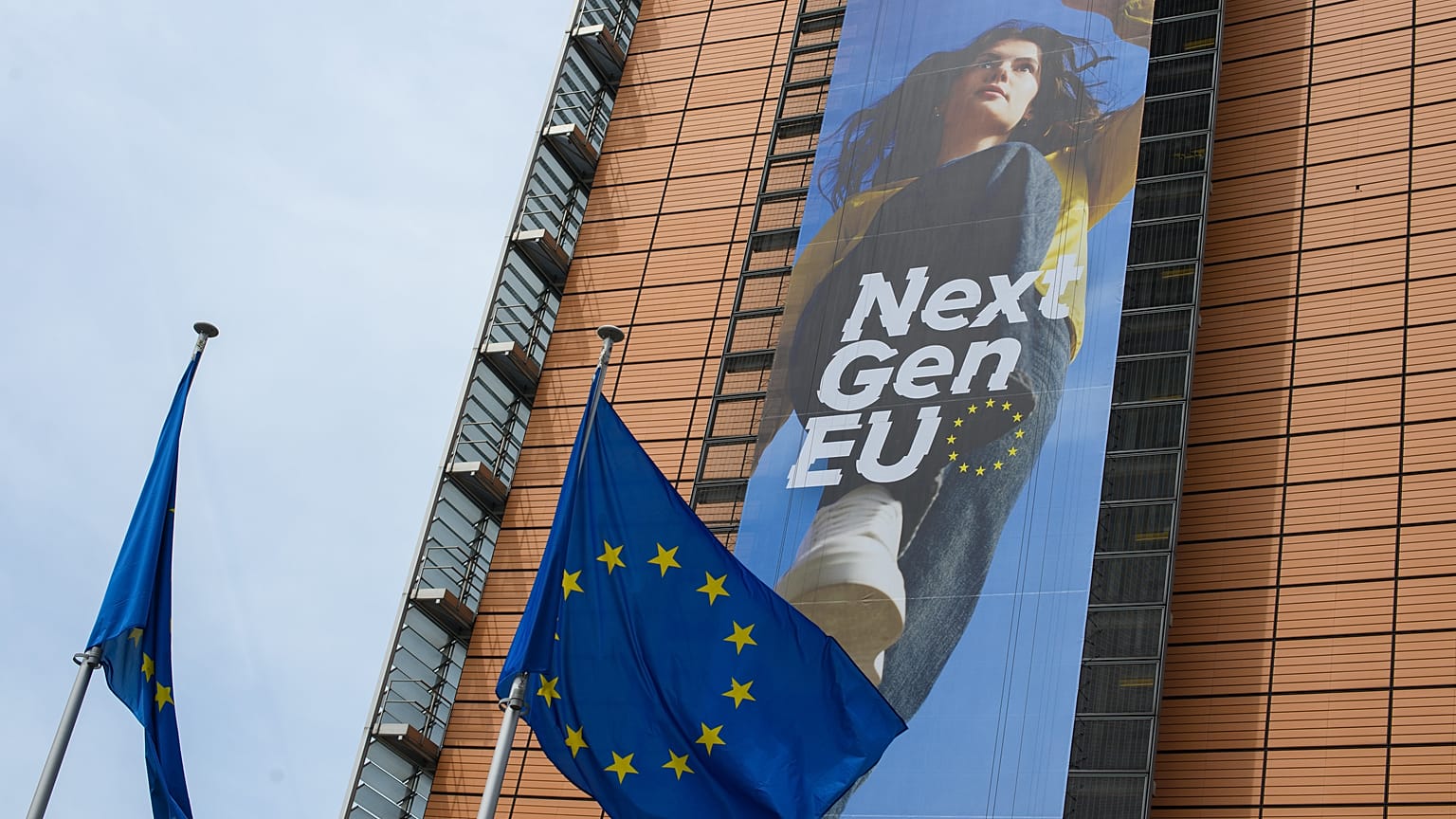Austria and Poland were the last two countries to give the green light.
After six months of parliamentary debates, internal discussions and judicial procedures, all 27 EU countries have ratified the legal instrument that underpins the bloc's €750-billion recovery fund, paving the way for money to reach national governments by July.
The last two pending green-lights were those of Austria and Poland, which were completed on Thursday following a positive vote in their respective parliaments. The Polish ruling coalition came close to breaking up due to disagreements regarding the country's plan to spend and invest its allocated share of the funds.
The legal instrument, known as the Own Resources Decision, will enable the European Commission to borrow the necessary cash on the financial markets and repay it over the next decades - by 2058 at the very latest.
All member states had to sign off the legislation, whose final version was agreed on December after Poland and Hungary lifted their veto over a mechanism that will link the disbursement of EU funds to compliance with the rule of law.
Johannes Hahn, European Commissioner for budget, took to Twitter on Thursday evening to celebrate the news and promised the recovery package, known as Next Generation EU, will be soon operational.
"I am confident that all remaining steps can be finalised still in May which would enable us to kickstart #NGEU and to start borrowing at the #capitalmarkets already in June!," Hahn said.
The European Commission is now in the process of scrutinising the national recovery and resilience plans that member states have progressively submitted. These plans, which take up hundreds of pages, outline how each country intends to spend the money they will receive from the €672.5 billion Recovery and Resilience Facility (RRF), which is the fund's key element.
From the €672.5 billion, up to €312.5 billion will be handed out as grants and €360 billion as loans. Many countries have chosen not to request loans, which, unlike grants, have to be repaid at a national level. This means the total EU recovery fund will not reach the original amount of €750 billion.
As of today, the Commission has received a total of 21 plans: Belgium, Denmark, Germany, Greece, Spain, France, Croatia, Italy, Cyprus, Latvia, Lithuania, Luxembourg, Hungary, Austria, Poland, Portugal, Slovenia, Slovakia, Finland, Ireland and Sweden.
Now that the Own Resources Decision is finally ratified and Brussels is therefore entitled to borrow from the markets, the cash could start flowing as soon as the first national plans are approved by the Commission and then by the Council.
In the most optimistic scenario, disbursements could begin sometime in July, a full year after EU leaders agreed to set up the landmark fund to help their economies emerge from the devastating impact of the coronavirus pandemic.
A Commission spokesperson explained on Friday that the countries which submitted their plans before May, like Greece, France, Italy and Slovakia, will receive 30% of their allocated funds in the two months following the Council's approval.
Throughout the second semester of 2021, Brussels is ready to distribute between €60 to €100 billion
A complicated ratification process
The creation of Next Generation EU was initially hailed as "the EU's Hamiltonian moment", in reference to the 1979 compromise brokered by US Secretary of Treasury Alexander Hamilton that allowed the US federal government to take over the debt incurred by the American states during the Revolutionary War and to repay this debt through federal bonds.
The arrangement forever changed the competences of the US federal government and created a fiscal union. Next Generation EU does not set up any permanent fiscal union, a prospect that remains anathema for some, but represents the most important milestone in European integration since the introduction of the euro.
Despite the urgency caused by the coronavirus pandemic, internal discussions and bureaucratic steps ended up slowing down the fund's practical establishment. Croatia and Cyprus were the first member states to ratify the Own Resources Decision back in mid January, while the latest ones, Austria and Poland, gave their go-ahead in late May.
Besides the protracted debates in some national parliaments, the ratification also took a judicial dimension when, in late March, the German Constitutional Court decided to examine an emergency appeal filed by the far-right party Alternative for Germany (AfD) that argued the recovery fund was in breach of the EU treaties.
The appeal was eventually dismissed by the German judges, who considered the price of derailing Next Generation EU was too high to pay given the severity of the current crisis.
Southern countries, as well as the European Commission, have become increasingly impatient with the slow ratification process. Portugal, which currently holds the rotating presidency of the Council of the EU, has been urging its colleagues to speed things up and put an end to the economic damage.
After US President Joe Biden passed a colossal $1.9 trillion (€1.56 trillion) relief bill in March, all eyes turned to the EU, whose recovery fund was designed months before Biden's but was still on stand-by. French President Emmanuel Macron even hinted that a second package might be needed to prevent the bloc from lagging behind its Atlantic peer.















